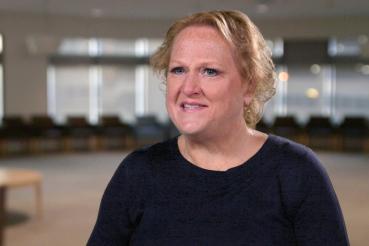Bariatric surgery is often the best option for people who want to lose weight and keep it off for good. Sleeve gastrectomy is one type of bariatric surgery.
During gastric sleeve surgery, your surgeon will remove 80% of your stomach. This leaves a vertical pouch.
Your new “stomach” (also called a remnant pouch) holds less food, but that’s just one of the changes that helps you lose weight. Because the portion of your stomach that was removed produced hunger hormones, you’ll feel less hungry and feel full faster after surgery.
These metabolic changes are what make bariatric surgery so successful.
Who qualifies for a sleeve gastrectomy?
Like the other kinds of bariatric procedures, the gastric sleeve procedure is not for everyone. Sleeve gastrectomy is for those with a BMI of over 40 or a BMI of 35 with a health condition that could be improved with bariatric surgery.
Health conditions that can be improved with sleeve gastrectomy include:
- Heart disease, high blood pressure and high cholesterol
- Type 2 diabetes
- Obstructive sleep apnea
- Stroke
- Cancer
- Infertility
- Joint pain and osteoarthritis
How does losing weight with vertical sleeve gastrectomy improve my health?
Excess weight affects your health in many ways. If you have heart disease, high blood pressure or high cholesterol, you may benefit from vertical sleeve gastrectomy surgery. Bariatric procedures can also lower your risk of heart attack or stroke.
Because weight loss surgery causes metabolic changes, this procedure can also help those with insulin resistance or type 2 diabetes. Those with nonalcoholic fatty liver disease or other metabolic-associated liver diseases can also benefit.
If you are trying to get pregnant, achieving a healthy weight can improve fertility. You may also be referred to the medical weight management team prior to another needed surgery (such as joint replacement).
What are the risks of gastric sleeve surgery?
Every procedure has risks and benefits. Sleeve gastrectomy is an effective way to lose weight, keep it off and improve your health.
Like other surgeries, sleeve gastrectomy increases your risk of bleeding. You may also be at a low risk for a leak in your GI tract. This procedure also puts you at a low risk of stricture (scar tissue causing a blockage). Gastroesophageal reflux (or GERD) and nutritional deficiencies can also occur after a sleeve gastrectomy.
Before your procedure, your surgeon will discuss the risks and benefits in detail and answer any questions.
How do I prepare for my gastric sleeve surgery?
We know it’s a big deal to consider weight loss surgery. Our team of experts in Chicago is here to help every step of the way. During your first visit with the gastric sleeve surgeon, you’ll discuss all surgical options (including benefits and risks) to determine which is right for you.
Following this appointment, we run a series of tests to make sure you’re healthy enough for surgery. This includes blood tests, imaging of your stomach and a heart screening. You will also visit a psychologist who specializes in working with bariatric patients.
Our dietitians also meet with every single patient, building the foundation for successful weight loss after your procedure.
This process can take three to six months to complete. During this time, our team is available to answer any questions you may have and provide support.
What happens during gastric sleeve surgery?
You will be given medicine (anesthesia) to put you to sleep. At Rush, gastric sleeve surgery is usually performed with minimally invasive techniques. This means instead of one big cut, you only get four or five small cuts in your abdomen. You will have less pain when you wake up, a smaller chance of postsurgical infections and a shorter recovery time.
First, your surgeon removes your stomach, disconnecting it from the organs surrounding it. Then the stomach is trimmed into roughly the size and shape of a banana, removing roughly 80% of your stomach. The surgeon then sews your incision sites closed.
How much weight will I lose after vertical gastric sleeve?
Most people who have sleeve gastrectomy lose about 60% of their excess weight or about 25% of their total body weight.
For example, if you are 6 feet tall and weigh 300 pounds, you have a BMI of 40. You are carrying about 120 pounds of excess weight — or the amount of weight you would have to lose to reach a normal BMI.
If you had gastric sleeve, you would lose about 72-75 pounds (60% of the 120 pounds of excess weight or roughly 25% of total body weight).
What should I expect after gastric sleeve surgery?
You may stay in the hospital overnight for observation. Most people return to work after about two weeks. You’ll have regular follow-up visits with your surgeon.
In the days and weeks after surgery, you will need to follow a strict diet so your stomach heals properly. After a few months, you can eat more normally. However, you will be able to eat less (due to your smaller stomach remnant). This means you need to make sure what you do eat has the energy and nutrients you need.
During your recovery, your surgeon, dietitian and nurses will be available for any questions or concerns you have. Our staff members work specifically with bariatric surgery patients — so you’ll always have access to a provider who knows exactly what you’re going through.
Rush Excellence in Sleeve Gastrectomy
- Preparation and dedication: Bariatric surgery is a major life change for most patients. We help every patient prepare for life after surgery, no matter which medical weight loss option they choose. Our weight loss specialists, dietitians and psychologists work with bariatric patients just like you every day.
- Experienced surgeons, backed by research: Our weight loss specialists have performed thousands of bariatric procedures. They know what to expect in the operating room and during recovery. Our bariatric surgeons also research the effectiveness of their procedures and techniques. They have published multiple studies on the outcomes and quality of life for bariatric surgery.
- Care where you are: In addition to our flagship hospital near downtown Chicago, Rush has locations throughout the region, including Chicago, South Loop, Oak Park, Oak Brook, Aurora, Oak Lawn, Hinsdale and Munster. You don’t have to travel far to get care from nationally recognized bariatric surgeons.
- National accreditation: Rush University Medical Center is nationally accredited in bariatric surgery by the American College of Surgeons Metabolic and Bariatric Surgery Accreditation and Quality Improvement Program. Accreditation is given to programs that exceed the national standards in quality and patient safety.





